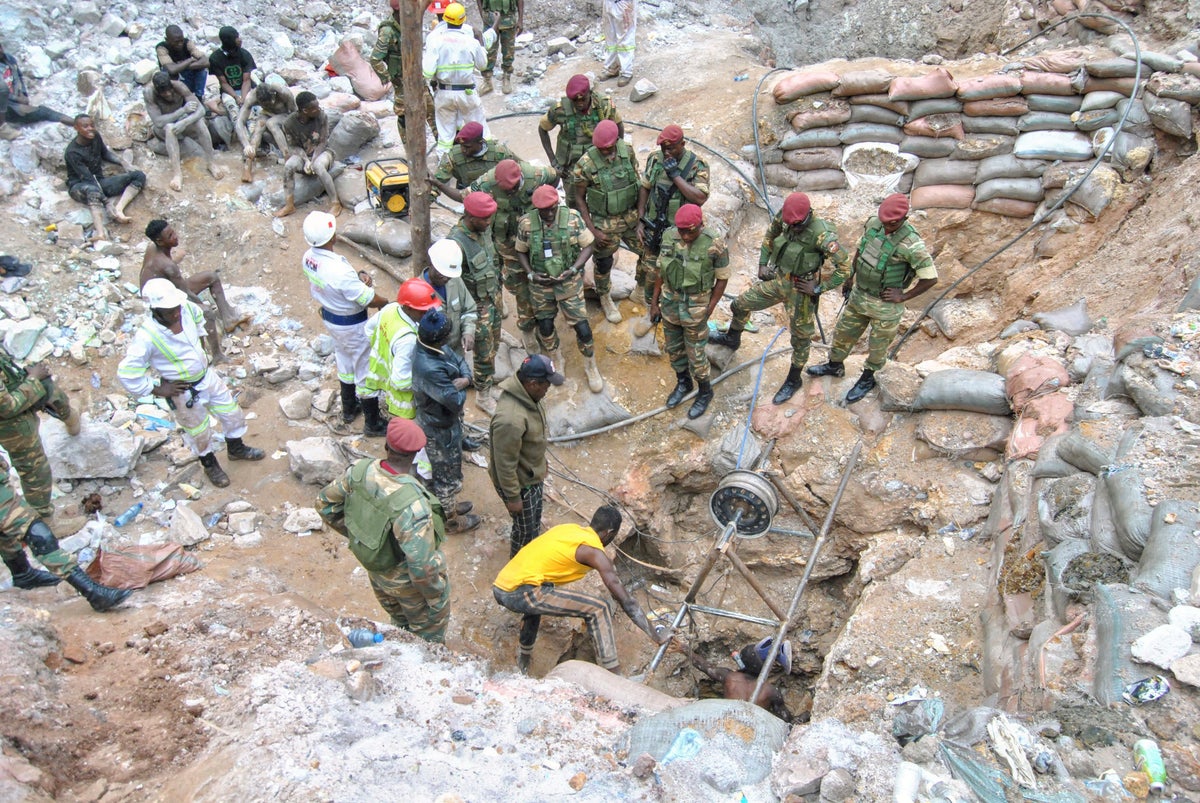
A member of a rescue team raised hope Monday that there may be survivors at a Zambian mine where more than 30 informal miners have been trapped under debris for days and presumed dead after heavy rain caused landslides.
Rescuers have been searching for the miners since early Friday after they were buried Thursday night while digging tunnels at an open-pit mine near the city of Chingola on the country's copper belt.
“We are getting close and expect to find survivors as there is some voices we are hearing from one of the tunnels," Wiva Chanda, an informal miner from the area helping with the rescue effort, told The Associated Press by telephone. "There is hope but I think it will be a mix of survivors and dead bodies.”
Chingola District Commissioner Raphael Chumupi said at least 36 miners were buried in three separate tunnels while they were digging for copper ore illegally at the Seseli mine without the knowledge of the mine owner. Zambian government officials said more than 30 miners were trapped under the landslides but couldn't give an exact number.
Police have said that all the miners are suspected to have died and named seven of them as confirmed fatalities. But no bodies have been retrieved and the Zambian government said it was premature to say how many had died.
Zambian Vice President Mutale Nalumango said in a statement that rescuers were still removing debris and pumping water out of the tunnels in the hope of finding some survivors.
“Their condition remains unknown,” Nalumango said of the miners. Rescue efforts were being hampered by more rain and one of the three sites where rescuers were working was completely waterlogged, she said. The army is also helping with the rescue effort.
Zambia is among the top 10 copper producers in the world. Chingola, which is around 400 kilometers (250 miles) north of the capital, Lusaka, has large open-pit copper mines surrounded by huge waste piles of rock and earth that has been dug out of the mines.
Informal mining is common, where artisanal miners dig in search of minerals, often without proper safety procedures.
___







